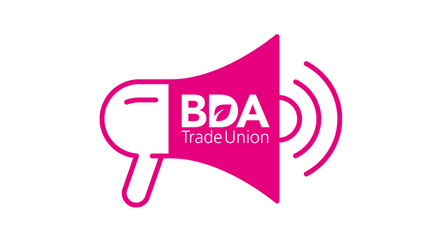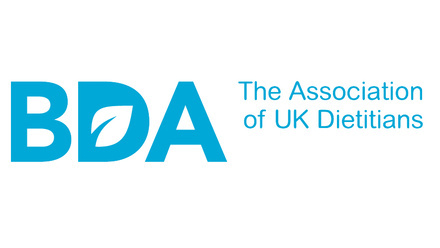This consultation asked a number of questions about different proposed Outcomes that may form a part of the final Programme for Governement. The BDA Northern Ireland Board's response to these questions is summarised under each proposed Outcome.
Our children and young people have the best start in life
Do you feel this Outcome is worth including in the Programme for Government framework?
Yes
BDA NI Board recognises the importance of establishing positive health and well being choices early in childhood. We recognise the need for children to be equipped with the skills to help them make healthy food choices. Also for families, childcare and education providers to be equipped and supported to provide high level of nutritional care. BDA NI Board wishes to promote the crucial role dietitians in delivering better health outcomes and enabling people make food choices throughout life that will maximise their health.
Food poverty amongst children is of particular concern. BDA are aware malnutrition (undernutrition) can cause many problems for children. They can have growth failure and stunting, delayed sexual development, reduced muscle mass and strength and impaired neuro-cognitive development. Equally, malnutrition caused by calorie-rich, nutrient poor food can lead to obesity, type 2 diabetes and other life-limiting conditions. Dietitians have the knowledge and skills to support children, young people and their families directly, but need to be enabled to have greater scope to work in public health at a population health level.
Do you agree with the Key Priority Areas that have been included under this Outcome?
Yes
BDA NI Board considers all these key priorities which are vital to a child or young person's development. We recommend, within these priorities, recognition of the role of good nutrition in providing the best start in life. For the need for access for all to affordable and healthy food. Also for parents, carers, school staff etc to have the knowledge, skills and facilities to enable children and young people to eat a healthy diet. Without good nutrition children and young people will struggle within the education system and will be less resilient. BDA NI Board also recommend greater availability to sports and physical activity opportunities for this age group. Good nutrition and being more physically active will promote capability and resilience plus help with tackling obesity.
Dietitians have extensive experience in training, advising and supporting others in health, social care and education to promote safe, sustainable and healthy nutrition. Dietitians across NI are involved in the delivery of wellbeing initiatives from early years, throughout childhood and early adulthood. BDA NI Board strongly recommends dietetic expertise is sought and accessed to support making healthier and better informed choices, easier choices for children and young people. We ask for dietetic expertise to be applied to address recommendations for vitamin supplementation across the population and make Healthy Start vitamins easily accessible to all children under 5. BDA NI Board also asks for assurance for dietitians to have lead roles on improving provision of nutrition in the public sector including early years, schools, care and leisure settings.
We live and work sustainably – protecting the environment
Do you feel there are Key Priority Areas missing under this Outcome?
Yes
Implications of Food and Farming do not seem to be clearly mentioned within these priorities. We appreciate food and farming is covered within Outcome 6 on economy. However, BDA NI Board recommends strong linkages should be identified in relation to sustainable and environmental food production and consumption, i.e. cross references required between Outcome 2 and Outcome 6.
We have an equal and inclusive society where everyone is valued and treated with respect
Do you agree with the Key Priority Areas that have been included under this Outcome?
Yes
Within this outcome in relation to tackling disadvantage, BDA NI Board wishes to draw attention to health inequalities and food insecurity. Dietitians in NI see the impact of food insecurity and health inequality every day in their work with children, adults and older people. Food poverty amongst children is of particular concern. Poor diet increases risk of illness, reduces a person’s quality of life and reduces their life chances. Such insecurity is not only caused by financial poverty, but a much wider range of issues including poor housing, social isolation and physical disability.
Dietitians have the knowledge and skills to support people directly, as well as working at a population health level to prevent and reverse food insecurity. Public Health Dietitians in NI have been reaching out to those facing food insecurity, using evidence-based nutrition inventions to assist people to shop wisely, cook healthy, and use food parcels appropriately. Dietetic led practical family focussed cooking skills and food budgeting programmes. Such programmes include; Food Values, Cook it, also practical guidance and support to food banks.
BDA recommends that high quality, nutritious food must be accessible to everyone in NI. As with a “health in all policies” approach, there is a need to ensure food policy is considered by all. BDA believes that a focus on the ‘Right to Food’ would ensure that the broad range of forms of food insecurity are considered. The right to food is fundamental to the ability to live a fulfilled life. Enshrining the Right to Food in law in NI would bring into force existing commitments that the UK as a whole has already endorsed through Covenant on Economic Social and Cultural Rights. A rights-based approach would ensure the government must consider the impact of all its policies on citizen’s ability to access a healthy diet. This would ensure that all government departments, not just health, must consider these matters.
We all enjoy long, healthy, active lives
Do you feel this Outcome is worth including in the Programme for Government framework?
Yes
BDA NI Board very much agrees with the ethos of this outcome to enable and support people to maintain their health and lead healthy, active lives. Dietitians have a lot to offer in the delivery of this outcome. Dietitians apply the science of nutrition to support people in making health maximising food choices throughout life. Dietitians focus on prevention, early intervention, supporting independence and wellbeing. Dietitians across NI are involved in the delivery of wellbeing initiatives from early years, throughout childhood and early adulthood, working and later life.
Do you agree with the Key Priority Areas that have been included under this Outcome?
Yes
BDA NI Board asks for recognition of the importance of access to healthy food. Poor diet increases risk of illness, reduces a person’s quality of life and reduces their life chances. Those living with food insecurity are much more likely to have poor mental health. Recent Ulster University research found between one in three and one in five householders in NI reported experiencing at least one symptom of food poverty. A long term solution to addressing food insecurity in NI is required.
BDA NI Board asks for recognition of the role of nutrition in the prevention of obesity, diabetes, cancer and other chronic conditions. For access to dietetic support in optimising nutrition and care for older people in the community, reducing the risk of malnutrition and unplanned hospital admission. We ask for improved access to dietetic expertise in primary care and community multidisciplinary teams. For recognition of the value dietitians bring to promoting self management of chronic conditions and enhancing quality of life.
Good mental health is intrinsically linked to good physical health. BDA NI Board advises acknowledgement is needed and appreciation given to the convincing relationship between mental health and nutrition. The potential for good nutrition to promote and maintain good mental health and also the impact of poor nutrition on the cause and continuance of poor mental health.
Everyone can reach their potential
Do you feel this Outcome is worth including in the Programme for Government framework?
Yes
BDA NI Board agrees with the principles of this outcome, however queries why the Department of Health is not referred to. The Department of Health oversees all public health work in NI, which is vital in helping people reach and maintain their potential.
Our economy is globally competitive, regionally balanced and carbon-neutral
Do you agree with the Key Priority Areas that have been included under this Outcome?
Yes
BDA NI Board very much favours the statement within this outcome referring to the production of high quality, nutritious food is crucially important for the economy in NI. However we highly recommend that high quality, nutritious food must be accessible to everyone in NI. BDA NI Board strongly advocates for a food system to be put in place that delivers better health outcomes for all. Yes food is central to the NI economy, however this outcome also needs to encompass the fact that NI currently has the poorest dietary health relative to other parts of the UK.
BDA NI Board is very surprised there is no mention of the Department of Health and no mention of public health strategies mentioned within this outcome, especially in relation to food. We strongly recommend greater cross government department linkages. BDA NI Board strongly supports the development of a Food Strategy for NI. However, we tenaciously recommend such a Food Strategy to be co-produced and co-owned jointly across all NI Government Departments.
The outcome highlights the need for a sustainable and healthy diet for NI. BDA NI Board is very much supportive of a sustainable diet not only with a lower environmental footprint that is healthy and provides for all nutrients, but also one which is acceptable to consumers and is economically viable. Such a diet is very much in line with the messaging within the BDA’s One Blue Dot campaign - sustainable eating and nutrition toolkit.
Dietitians are ‘perfectly placed’ to interpret the complex science and to communicate national and international guidance to help the public understand what they need to do to improve their own health and that of the environment. BDA and dietitians have a view right across the whole food system. Health is just one link in the food chain.
BDA NI Boards ask is for the vision to be realised to allow dietitians full potential to work across the food system and make a real and lasting difference. We want dietitians mobilised, using their expertise to influence earlier. Rather than landing at ‘Health’s’ door to fix the impact of poor food and diet choices, shifting dietitians’ impact to earlier in the food system is key to a preventative and long-term solution. A co-produced, co-owned, rebuilt food system for NI!
BDA NI Board key asks under this outcome:
- Develop a Food Strategy for NI, one which is co-produced and co-owned jointly across all NI Government Departments
- Recognise good nutrition and hydration are fundamentals to good health, as a primary consideration within the Food Strategy
- Involve BDA and dietetic expertise - utilising the knowledge and unique skill set of dietitians in the early stages of planning, development and delivery of a Food Strategy for NI, to ensure nutrition and food security issues are fully embedded
Everyone feels safe – we all respect the law and each other
Do you agree with the Key Priority Areas listed in the drop down menu below) that have been included under this Outcome?
Yes
Under the key priority area of Early Intervention and Rehabilitation, BDA NI Board recommends the Criminal Justice system in NI, considers the use of health based early intervention and rehabilitation initiatives for all, particularly important for young offenders to assist in stopping the constant cycle of reoffending. Such health based initiatives should incorporate dietetic led nutrition and diet interventions. One of the key skills a dietitian can bring, is working with a behaviour change model, to support people understand why they make the food choices they make and work with them to educate and help encourage lifestyle changes to improve long term health outcomes.
What, and how, we eat can affect our mood, behaviour and ability to concentrate. For young people this is particularly relevant. Research with adolescents indicates that “healthier” dietary patterns contribute to better mood, and “unhealthy” dietary patterns led to poor mood.
Within prisons and young offender centres, dietitians should be enabled to work with catering teams, advising on menu planning, recipe analysis and food & nutrition policy development. BDA NI Board advocates the importance of ensuring acceptable, as well as nutritionally balanced meals and snacks are easily accessible in such settings.
We have a caring society that supports people throughout their lives
Do you agree with the Key Priority Areas that have been included under this Outcome?
Yes
Within this outcome BDA NI Board wishes to draw attention to the fact that malnutrition is a very real and current problem in the NI population, particularly prevalent amongst older people. Malnutrition, especially undernutrition has a significant impact on the immune system, increasing vulnerability to the effects of Covid-19 and other infectious diseases. Malnutrition impacts on frailty through muscle wasting and cognitive impairment, leading to an increased risk of falls and an inability to go about typical daily tasks such as buying or preparing food. A parallel risk of anxiety and depression is also a concern. The vast majority are in the community, living at home, with many unknown to healthcare services. Loneliness is a significant risk factor for malnutrition. Socially isolated older people often
experience reduced appetite, eat fewer meals in a day and have a lower intake of protein, fruit, and vegetables in their diet.
Dietitians have the expertise both at an individual patient and population health level to identify and treat individuals, and also train others to prevent and treat malnutrition. Preventing malnutrition will save health and social care resource and money. Strategies are needed that prevent, detect and treat malnutrition in the community.
Additional comments
BDA NI Board urges for greater cross government department working. We strongly recommend the need for interdepartmental working plans and budgets to fully achieve the ambitious outcomes in this draft programme for government. Without interdepartmental working plans and joined up budgets, BDA NI Board are concerned the innovation indicated within this draft programme for government will not be accomplished, and instead continuation of a disconnected system will be the result.





